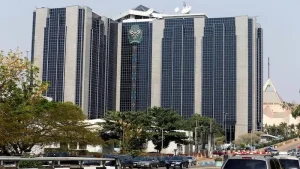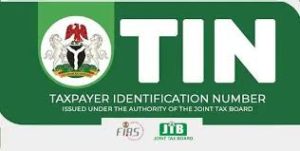CONTENTS
-
NIGERIA AT 65
-
CBN EASES MPR TO 27%
-
NIGERIA’S REVENUE SURGES TO ₦3.65 TRILLION
-
PETROLEUM & ENERGY UPDATE
-
ECONOMIC & AGRICULTURAL REFORMS UPDATE
-
NO TAX ID, NO BANK ACCOUNT – FG
NIGERIA AT 65

President Tinubu Says “The Worst Is Over”
In his Independence Day broadcast on October 1, marking Nigeria’s 65th anniversary, President Bola Ahmed Tinubu declared that the country has “turned the corner” and is now on a path of economic recovery and stability.
The President highlighted reforms such as the removal of fuel subsidies and the unification of foreign exchange rates, which he said are already yielding results. He noted that Nigeria recorded 4.23% GDP growth in Q2 2025, the fastest in four years, while inflation dropped to 20.12% in August, the lowest in three years.
Tinubu listed 12 achievements under his administration, including:
-
Record non-oil revenue of over ₦20 trillion by August 2025
-
External reserves rising to $42.03 billion, the highest since 2019
-
Oil production up to 1.68 million barrels per day
-
Domestic refining of petrol resuming for the first time in four decades
-
Debt service-to-revenue ratio reduced from 97% to below 50%
-
Trade surplus for five consecutive quarters, with non-oil exports now accounting for 48% of export trade
While acknowledging the ongoing challenges of high living costs and food inflation, Tinubu urged Nigerians to remain steadfast, patronise local products, and support the reforms. He assured that the sacrifices endured were necessary to secure long-term stability and growth.
“We have restored fiscal health, freed up trillions for investment, and diversified our economy. The worst is over, and Nigeria’s brighter future is within reach.” — President Tinubu
CBN EASES MPR TO 27%

Move expected to stimulate growth and ease borrowing costs.
For the first time in five years, the Central Bank of Nigeria (CBN) has trimmed its key interest rate, signalling a cautious but notable shift in monetary policy as inflation continues to ease.
At the end of its two-day Monetary Policy Committee (MPC) meeting in Abuja on Tuesday 23 September 2025, the Bank reduced the Monetary Policy Rate (MPR) by 50 basis points to 27 percent. This marks the beginning of a policy easing cycle aimed at supporting economic growth while safeguarding macroeconomic stability.
Complementary Measures
Alongside the MPR cut, the MPC announced additional policy adjustments to balance growth support with inflation control:
- Cash Reserve Requirement (CRR): Reduced for commercial banks to 45% (from 50%), retained for merchant banks at 16%.
- Public Sector Deposits: Introduced a 75% CRR on non-Treasury Single Account (TSA) public sector deposits to absorb excess liquidity.
- Standing Facilities Corridor (SFC): Widened to ±250 basis points around the MPR.
- Liquidity Ratio: Held steady at 30%.
Analysts note that these steps show the Bank’s attempt to fine-tune liquidity conditions, loosening to support lending and growth while tightening where inflation risks could arise.
Governor’s Remarks
CBN Governor, Olayemi Cardoso, said the decision was based on recent data and forward-looking projections.
“The MPC’s decision to lower the monetary policy rate was predicated on the sustained disinflation recorded in the past five months, projections of declining inflation for the rest of 2025, and the need to support economic recovery efforts,” he stated.
He added that CBN staff project further disinflation, citing:
- The lagged effect of earlier rate hikes
- Stability of the exchange rate
- Lower PMS (petrol) prices
- Seasonal decline in food prices during harvest
All 12 MPC members voted unanimously in favour of the cut.
Macroeconomic Context
Nigeria’s macroeconomic indicators have shown notable improvement:
- GDP Growth: 4.23% (Q2 2025), up from 3.13% in Q1, driven by a rebound in the oil sector.
- External Reserves: $43.05 billion (September 11), up from $40.51 billion in July, covering over eight months of imports.
- Current Account: Surplus of $5.28 billion in Q2.
- Naira Stability: Supported by stronger capital inflows and policy reforms.
Cardoso further highlighted the importance of foreign exchange stability, progress in bank recapitalisation (14 banks have met new thresholds), and continued fiscal discipline.
“The Committee acknowledged the continued stability of the foreign exchange market and its critical importance in achieving rapid disinflation,” he said. “It therefore called on the Bank to continue implementing policies that would boost capital inflows and deepen foreign exchange liquidity.”
The CBN’s latest policy move reflects a delicate balance: easing conditions just enough to spur growth while maintaining vigilance over inflationary pressures from fiscal liquidity.
NIGERIA’S REVENUE SURGES TO ₦3.65 TRILLION

Reforms drive record-breaking 411% revenue surge in September.
Nigeria’s federal revenue reached N3.65 trillion in September 2025, representing a 411% jump from the N711 billion recorded in May 2023 when the current administration assumed office.
The announcement was made by Dr. Zacch Adedeji, Executive Chairman of the Federal Inland Revenue Service (FIRS), during a briefing with State House correspondents in Abuja.
Adedeji attributed the surge to sweeping fiscal reforms, stronger compliance mechanisms, and a fundamental shift in Nigeria’s revenue architecture, particularly the growth of non-oil income streams.
Sectoral Performance at a Glance
- Non-Oil Revenue: N1.06 trillion (up 599% from N151 billion in May 2023)
- Oil Revenue: N644 billion (up from N96 billion)
- VAT Collections: N723 billion (up from N218 billion)
- NUPRC: N745 billion (up from N125 billion)
- NCS: N322 billion (up from N106 billion)
Between January and August 2025, FIRS collected a total of N20.62 trillion in tax revenue, a 40.8% increase compared to the same period in 2024. This performance has already surpassed the agency’s baseline target of 16.4% growth, positioning Nigeria to meet its N25.2 trillion revenue target by year-end.
Reforms Reshaping the Tax Landscape
Key reforms credited for this growth include:
- Streamlined tax processes to ease compliance for SMEs
- Deployment of digital tools such as e-invoicing and updated excise regulations
- Development of a presumptive tax regime for hard-to-tax sectors
- Efforts to harmonize state-level levies
- Discontinuation of unbacked Ways and Means advances from the CBN, now reclassified as federal debt to strengthen fiscal discipline
Adedeji noted:
“Our goal is to build a fair, efficient, and sustainable tax system that supports growth and boosts investor confidence.”
Borrowing & Future Outlook
Adedeji emphasized that borrowing for infrastructure remains a sustainable strategy, provided it is legislated and tied to future revenue generation.
Looking ahead, the FIRS confirmed that comprehensive reforms to Personal and Company Income Tax will begin in January 2026, expected to broaden the tax base and reinforce Nigeria’s fiscal resilience.
What You Should Know
The revenue update comes just days after FIRS issued a directive mandating strict compliance with withholding tax on interest earned from short-term securities, in line with the Companies Income Tax Act (CITA) and the 2024 Withholding Tax Regulations.
With non-oil revenue growth outpacing oil gains, Nigeria’s diversification drive is gaining momentum. The FIRS reforms signal a push toward a more modern, digital, and sustainable tax system.
PETROLEUM & ENERGY UPDATE

Dangote Refinery Makes History with First U.S. Fuel Exports and begins free local distribution
Barely one year after commencing production, Nigeria’s Dangote Refinery has achieved a historic milestone, exporting petrol (Premium Motor Spirit) to the United States for the very first time. This development not only signals Nigeria’s growing influence in the global energy space but also reshapes how the world views Africa’s largest economy as a player in refined petroleum trade.
According to vessel-tracking data, the tanker Gemini Pearl successfully delivered about 320,000 barrels of petrol to Sunoco’s Linden facility in New York Harbor. The deal was arranged by global oil trader Vitol, which purchased the cargo from Geneva-based Mocoh Oil before selling most of it to U.S. distributor Sunoco.
This marks the first time that Nigerian-refined petrol has cleared the stringent regulatory and quality checks of the U.S. motor fuel market, a benchmark many in the industry have been keenly watching.
The plot continues to thicken: new cargoes from Dangote are still en route, though some expectations have shifted with time. What was once projected for mid-September is now arriving amid evolving market dynamics. Regardless of timing, Dangote’s repeated entries into U.S. and European markets underscore its growing influence and signal that Nigeria is no longer a fringe player in the refined fuels trade.
Domestic & Global Significance
- For Nigeria: With a nameplate capacity of 650,000 barrels per day (bpd), set to reach 700,000 bpd in 2026, the refinery is reducing Nigeria’s reliance on imports and saving billions of dollars in foreign exchange. This also helps reduce subsidy-related fiscal pressure.
- For Global Markets: Dangote is diversifying supply chains traditionally dominated by Europe, Asia, and the Middle East. By consistently exporting to markets like the U.S., Nigeria positions itself as a serious competitor in global refined products.
- For Nigerians: Increased refining will eventually translate to more stable fuel prices, less scarcity, and job creation across multiple industries, from logistics and transport to petrochemicals.
Proven Capacity
Speaking at a press briefing, Aliko Dangote disclosed that between June and early September 2025, the refinery exported over 1.1 billion litres of petrol. This demonstrates its ability to meet both domestic demand and contribute significantly to foreign exchange earnings.
Nigeria’s petroleum industry is moving from dependence to dominance. Dangote’s success has placed Nigeria firmly on the global energy map, creating new opportunities in logistics, supply chain support, and trade financing.
At Centrum Finance, we remain committed to supporting businesses ready to seize these emerging opportunities and grow with Nigeria’s energy transformation story.
ECONOMIC & AGRICULTURAL REFORMS UPDATE

FG Unveils Agricultural Reforms, Targets 21 million Jobs
Agriculture remains Nigeria’s largest employer, and in September 2025, the Federal Government rolled out sweeping reforms to reposition the sector as a major growth driver and food security anchor. The reforms, announced by Vice President Kashim Shettima at the FAO’s Hand-in-Hand Investment Forum in Abuja, are expected to create 21 million new jobs and attract large-scale investment into Nigeria’s rural economy.
Key Components of the Reform Package
- Simplified Land Access: A new single-window platform for land registration will remove bureaucratic bottlenecks and encourage private investment.
- Mechanisation & Irrigation: Nigeria currently irrigates less than 10% of its cultivable land. The reforms target large-scale mechanisation and irrigation projects to triple yields and reduce dependence on rain-fed farming.
- Improved Financing: New credit structures and guarantees are being designed to make capital more accessible for smallholder farmers and agribusinesses.
- Job Creation & Rural Development: Government projections show 21 million new jobs across the agriculture value chain over the coming years.
Why This Matters
The initiative arrives at a critical time when food prices and inflation have placed heavy pressure on households. By addressing systemic issues like poor irrigation, limited financing, and land access challenges, the reforms could dramatically boost local food production and reduce reliance on imports.
Stakeholder Reactions
Farmer associations welcomed the reforms but urged consistent implementation. The All-Farmers Association of Nigeria (AFAN) warned that “policy without execution will not change the food system.” Women and smallholder groups also stressed the importance of inclusivity, since they remain the backbone of rural food production.
Opportunities for Investors
International partners including the EU and FAO pledged support, highlighting opportunities in rice, cassava, maize, and value-chain processing. Analysts estimate that if fully implemented, the reforms could unlock billions in agribusiness investments and boost Nigeria’s non-oil GDP growth trajectory.
Centrum Finance Perspective
At Centrum Finance, we see agriculture as the heartbeat of Nigeria’s growth story. Our tailored loan and investment products are designed to empower farmers, agribusinesses, and entrepreneurs to seize the opportunities these reforms bring. Together, we can grow a stronger, more resilient economy.
NO TAX ID, NO BANK ACCOUNT – FG

From January 1, 2026, all taxable Nigerians will be required to obtain a Tax Identification Number (Tax ID) in order to operate or maintain bank accounts, insurance policies, pension accounts, and investment accounts.
This update was confirmed by the Presidential Committee on Fiscal Policy and Tax Reforms, in line with the Nigeria Tax Administration Act (NTAA).
What You Need to Know
- Who needs a Tax ID?
Anyone who earns income from trade, business, or other economic activities. Non-taxable individuals (like dependents without income) are exempt. - Not entirely new:
Since 2020, business accounts already required a TIN. The NTAA now harmonises and enforces this rule more broadly. - Tax ID vs. TIN:
Your NIN (for individuals) or CAC RC number (for companies) will serve as your Tax ID. Existing TINs remain valid. - No card required:
A Tax ID is simply a number, no need for a separate physical card. It can be obtained online or at official tax offices, free of charge. - Applies to businesses too:
Companies, NGOs, and incorporated bodies must also comply. New CAC registrations now automatically generate TINs. - For Nigerians in the diaspora:
A Tax ID can be obtained using your NIN for banking or investment purposes back home. - Consequences of non-compliance:
By January 2026, taxable persons without a Tax ID will be unable to operate financial accounts. Sanctions may also follow.
Why It Matters
This reform is designed to simplify tax identification, reduce duplication, and ensure everyone who earns taxable income contributes fairly. For most Nigerians, their existing NIN or CAC number will be enough, no extra paperwork required.
What This Means for You:
If you earn income in Nigeria, ensure your Tax ID is updated before January 1, 2026 to avoid disruptions with your bank or financial services.
Final Word from Centrum Finance
From bold reforms in agriculture to historic milestones in energy and record-breaking growth numbers, September 2025 shows that Nigeria is entering a new phase of opportunity. At Centrum Finance, we remain committed to walking this journey with you, providing financial solutions that help you save, invest, and grow with confidence in a rapidly changing economy.
SOURCES: Nariametrics, Businessday, istock images, Punch newspaper, ICIR Nigeria, Premium Times, Leadership News, Vanguard News, Daily Times Nigeria, Linda Ikeji’s Blog.
DISCLAIMER
This publication is produced by Centrum Finance Company Limited solely for the information of users who are expected to make their own investment decisions without undue reliance on any information or opinions contained herein. The opinions contained in the report should not be interpreted as an offer to sell, or a solicitation of any offer to buy any investment. Whilst every care has been taken in preparing this document, no responsibility or liability is accepted by any member of the Company for actions taken because of the information provided in this publication

